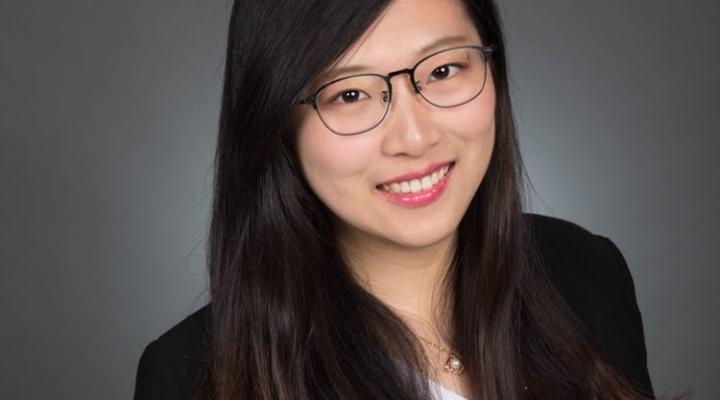Jamol Pender, Assistant Professor in the School of Operations Research and Information Engineering (ORIE) at Cornell, enjoys the certainty mathematics can sometimes provide. “There is something about a proof that says ‘this is the answer’---I find that very satisfying,” says Pender. “Math at the academic level will sometimes require that you do something that has not been done before. And then you have to prove that your solution works. I really enjoy work like that.”
The sorts of problems Pender uses math to solve are those that develop when people are waiting in lines. Some of the lines he studies are actual lines of people in the physical world and others are virtual. Pender is a queueing theorist and he analyzes how people wait in lines, what makes them impatient while in line, and what percentage of them will decide to leave the line. His research has applications in healthcare, retail, wireless networks, data centers, and financial systems.
To explain the relevance of his work, Pender tells a story about UCLA and the long lines of students who wait outside the Bruins’ arena to get tickets for home basketball games. The very long lines starting many hours before tickets actually went on sale were having an odd effect on attendance at the games. Students would see the lines and think that surely the game will be sold out, so they would not bother to even try for tickets. Many people opted to not join the line and games were often not sold out.
To remedy the situation, UCLA opened a second line—online. So now there is a real-world queue at the arena and a virtual queue on the website that sells tickets to the games. And now games are sold out.
Pender’s research aims to model the performance of nonstationary queueing networks with impatient customers, which are lines where people can join and drop out at random and where the arrival rate varies through the time of day. It is in a company’s interest to serve as many interested customers as possible and if people are leaving the line, that means there are some lost opportunities. The more accurately Pender can model a network, the better the network will function. Apps like Lineapple and Qless have sprung up to help consumers manage the frustration of waiting in line on their mobile phones.
Pender has been working with Lineapple, which has been a great source of many important and practical research questions involving smartphones and queueing apps. One of his findings is that a multiple of the number of customers that are going to depart the line without receiving service is exactly the amount of time that a company should require its customers arrive early. Thus, knowing how many people are going to abandon can be used to determine what time you should tell them to arrive.
Pender, who is from the Bronx in New York City, liked to tinker with things when he was growing up, as many future engineers do. In addition to tinkering, he developed a parallel interest in money and stocks. “My seventh grade math teacher had an assignment where we had to use the Wall Street Journal to help us pick a stock and then follow its price,” says Pender. “I chose Nike, and then when I was 18 I bought some actual stock in Nike—which I still own.” Pender combined his engineering and mathematical interests and earned a B.S. and an M.S. in electrical and systems engineering from the University of Pennsylvania. While there, has also took classes in financial engineering, which were just starting to be offered by the Wharton School at UPenn. He then received his Ph.D. in operations research and financial engineering from Princeton University in 2013.
Pender’s interest in stocks and finance has found its way into his work on queueing theory. Nonstationary queues with impatience can be used to model limit order books from the financial community. Limit order books are not actual books; rather, they are a list of orders (manual or electronic) that stock exchanges use to record the interest of buyers and sellers in a particular financial instrument. A matching engine uses the book to determine which stock trades can be made. With the advent of very high speed trading, understanding and modeling how limit books function can be essential to understanding how markets work. “The high speed of trades is parallel to heavy traffic limit theory in queueing theory,” says Pender. “It is an interesting problem to study nonstationary effects on the limit order book.”
Pender is happy to be on the faculty at ORIE at Cornell. “I really like the department here,” says Pender. “I think it is by far the best place in the country to do operations research. People are cordial, supportive, and more collaborative than any place I have ever been.” He is currently teaching a graduate seminar on applied stochastic processes. “Teaching the class has been quite fruitful for me,” says Pender. “I have learned a lot from my students.”





